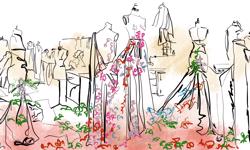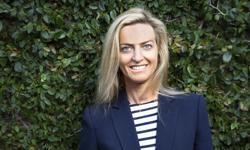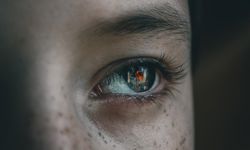
With Covid-19 leaving thousands of students without the celebratory final they deserve, ELLE has given 12 young students aged 16 – 19 years old unparalleled access to the creative industry, in a commitment to building a new future of fashion, say the publishers.
Working with The Social Mobility Commission, ELLE was able to identify and draw students from a combination of medium and cold spots (disadvantaged areas) from across the country, including: Blackpool, Hastings, Norwich, Wakefield and Ipswich to name a few, which are some of the most deprived opportunity areas in the UK across all social mobility indicators and the hardest hit by the pandemic.
During the curation of the September issue, each student worked alongside a mentor, including Editor-in-Chief, Farrah Storr, via Zoom to get an understanding of the process, whilst contributing ideas across everything from the creative direction of shoots, fashion styling, drafting headlines and the cover shoot with Adwoa Aboah.
As part of this campaign, students interviewed and commissioned a piece from ELLE’s cover star Adwoa Aboah who penned a personal letter to the class of 2020 about growing up, lessons she learned, mental health, starting out in her career, the BLM movement and what is next. Following the issue going to press, students will see their input come to life with their names across ELLE print and digital, with some students also getting the chance to see their artwork being used either as a subscription or digital cover. All students will be offered the opportunity to continue their mentorship until June 2021.
Farrah Storr, Editor-in-Chief of ELLE and board member of the Social Mobility Commission says: “Growing up in Salford there were few people I knew who had 'made' it into the media. And it really did feel like 'making it' because it was such a different world, congregated as it was in London. There wasn't a single teacher who discussed the possibility of becoming a journalist, let alone a magazine editor and so my horizons remained fairly limited. We wanted therefore to find, help and inspire the next generations of media superstars from across the UK... those where a career in the creative industries is not always front of mind. True diversity of the media starts with recognising that there are multiple voices with a myriad of life experiences and educational backgrounds all of whom should play a large part in the British media.”












